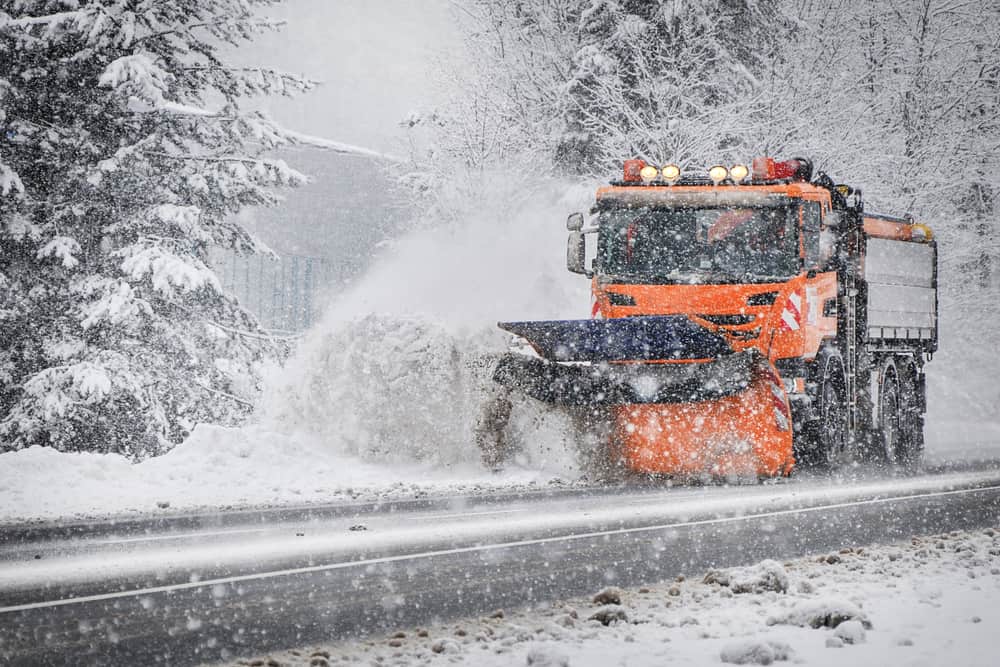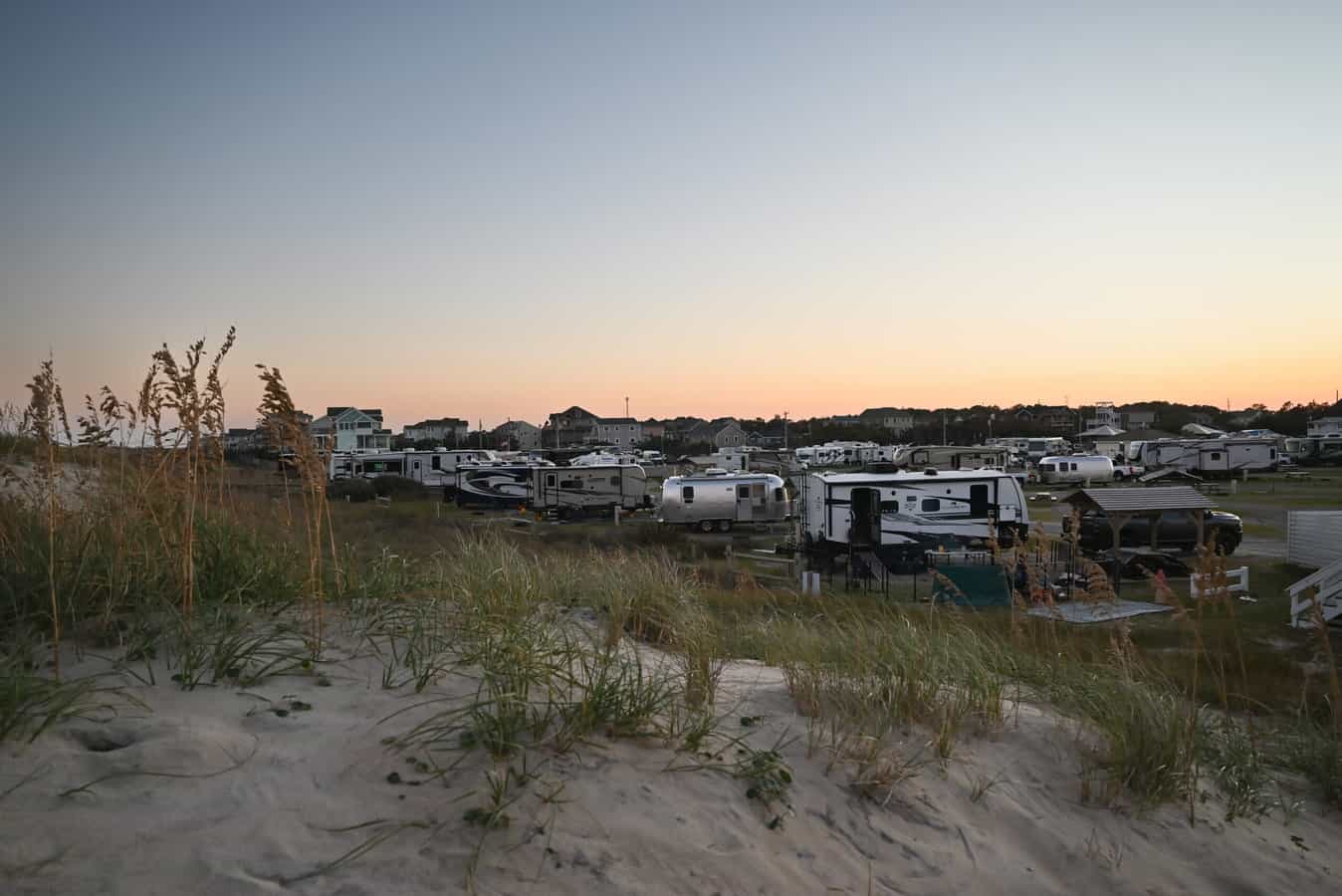
Are You Prepared For Winter Storms When RVing?
If you like to travel all year long, that means you’ll probably run into bad weather every now and then. Although most RVs can withstand a few chilly nights, things can get dangerous once the temperature drops and the snow starts falling. That’s why every RVer should know how to prepare for a winter storm.
Different RVs have different levels of temperature tolerance. Some 4-season models may be better equipped to handle winter storms, but everyone can benefit from taking some preventative measures. After all, nobody wants to spend the night in a freezing camper or deal with the fallout that comes from frozen plumbing pipes.
If you know that a nasty storm is on the horizon, there are a few things you can do to make the experience more bearable. With the proper precautions, you might not even notice the bad weather at all! Make sure you plan ahead for these things and bring all the necessary equipment because you don’t want to prepare for a winter storm at the last minute. Follow along with the steps below if you know you’ll be experiencing freezing temperatures and/or heavy snowfall.
1. Prepare Your Water Tanks To Prevent Freezing
One of the most important elements of winter RV camping is preventing your water tanks from freezing. If your pipes freeze, they can burst and cause all kinds of water damage. There are a few things you can do to minimize this danger though.
Use a heated water hose
If you’re camping at a place that has water hookups, try using a heater water hose. This prevents water from freezing when you draw it into your RV. There are lots of heated water hoses on the market, but you can also use a standard hookup and wrap it in a few layers of insulated material. This 15-foot model from REHOSEUP is a good option for RVers who want to prepare for a winter storm.
Keep sewer hose off the ground and pointed downward
Speaking of hookup hoses, your sewage connection is also important. You don’t want to deal with the mess that comes from a frozen sewage line. Similar to the option above, you can wrap your hose in insulated layers to slow down/prevent the freezing process. The position of the hose also makes a difference. You need to make gravity work in your favor. If possible try to ensure that the sewage hose is in an upright position so the waste can easily flow downward and avoid getting stuck.
Put antifreeze in grey and black tanks
Antifreeze can help you out when you’re preparing for a long, cold night. Your holding tanks are in danger of freezing if you don’t take some preventative measures. You can’t safely drink antifreeze, so you’ll need to find alternative ways to keep your fresh water safe. But your black and grey water tanks also have a lot of liquid in them and you can minimize the risk of freezing by mixing some antifreeze into each of these tanks.
Let the faucets drip overnight
Finally, remember that flowing water is much harder to freeze compared to stagnant water. If you keep your faucets trickling overnight, you can usually avoid the worst of the damage. This is even better if you have access to a water hookup because you won’t have to worry about draining your fresh water tank. Turn on the various faucets in your RV and keep them running during the coldest parts of the day/night.
2. Use Alternative/Additional Heat Sources
Sometimes you can’t rely on your RV battery/furnace for the entire duration of a storm. If the bad weather continues for a long time, you’ll be happy if you have a few alternative heat sources to keep you nice and warm.
Fill propane tank
If you know a storm is on the horizon, make sure you fill up your propane tank. If you have any heaters or appliances that run on propane, you might want to pick up a bit of extra fuel for them as well.
Buy a good space heater
Space heaters can be a lifesaver when you need to prepare for a winter storm. They can quickly heat up small spaces, so they’re ideal for warming up a single room. If you have multiple heaters or a single powerful one, it might even be enough to heat your entire RV! Just make sure you have the ability to run it if you don’t have electricity.
Heating pads/heated blankets
Don’t underestimate the power of a good heating pad or electric blanket! These can keep you nice and toasty even if the rest of the RV is cold. They’re efficient and don’t use a lot of power, so you might want to grab a few of these items if you plan to wait out a storm.
3. Minimize Heat Loss
Even if you manage to warm up your RV, sometimes this isn’t enough. A lot of trailers don’t have great insulation, so they tend to lose heat after a while. Luckily, there are a few things you can do to minimize heat loss.
Isolate small areas to keep warm
In most cases, it’s much easier to keep a single room of your RV warm instead of the whole thing. Choose a closed-off area like the main bedroom and focus the majority of your efforts there first. Cover the windows, hand blankets over the walls, and bring in a heater. If you need an even smaller area, you might want to set up a small tent on top of the bed. This provides an extra layer and helps you retain more heat.
Improve your interior insulation
You can bulk up the insulation within your RV in several places. Windows are one of the major sources of heat loss, so make sure you cover them up if you’re preparing for a winter storm. Double-check the weather strips around the doors as well because you don’t want any drafts coming through. Vents should also be covered up when they’re not in use.
Minimize moisture in the RV
Your RV is more likely to feel cold if it’s damp or humid. Moisture can cause major problems, especially if the temperature is below freezing. Wipe down/dry the surfaces in your bathroom when you’re done showering. You also may want to run a dehumidifier so you can keep everything warm and dry.
4. Protect The RV Underbelly
The underbelly of your RV is sturdy, but it can be vulnerable once the weather starts to turn. There are lots of vital components on the underside of your vehicle, so you need to take some special steps to protect everything.
Set up RV skirting
RV skirting is a great way to insulate the underbelly and prevent snow and ice from getting underneath the vehicle. You can either buy skirting or make your own out of tarps, plywood, vinyl, etc. Inflatable RV skirting can be a useful solution because it’s easy to set up and take down.
Use holding tank heating pads
Even if you take preventative measures to keep your holding tanks from freezing, it never hurts to use some heating pads on the external parts. Heating pads will keep the tanks warm and unfrozen for long stretches of time. These RecPro models from Amazon are perfect for winter RVers.
5. Prepare For The Long Haul
It’s great to know how to prepare for a winter storm, but sometimes you’ll still get snowed in for days at a time. If the vehicle won’t start or you can’t drive on the roads, you need to have emergency backup supplies.
Keep a 72-hour kit in the RV
It’s important to keep a stash of food, water, warm clothing, medical supplies, and other necessities on hand. A 72-hour kit is always important to keep around, but it’s even more important if you think you might get caught in a winter storm.
Fill your fresh water tank
Finally, top off your fresh water tank whenever you can during the winter. You never know if your campground hookups will continue to work, so maintaining a full tank will ensure that you always have some water if you’re stuck for a while. Keeping a few packs of water bottles in your pantry can also be helpful!
Related Articles:
- 6 Things You Need To Know About Camping In A Storm
- What To Do If Your RV Black Water Tank Is Frozen
- How To Winterize An RV Without Antifreeze




